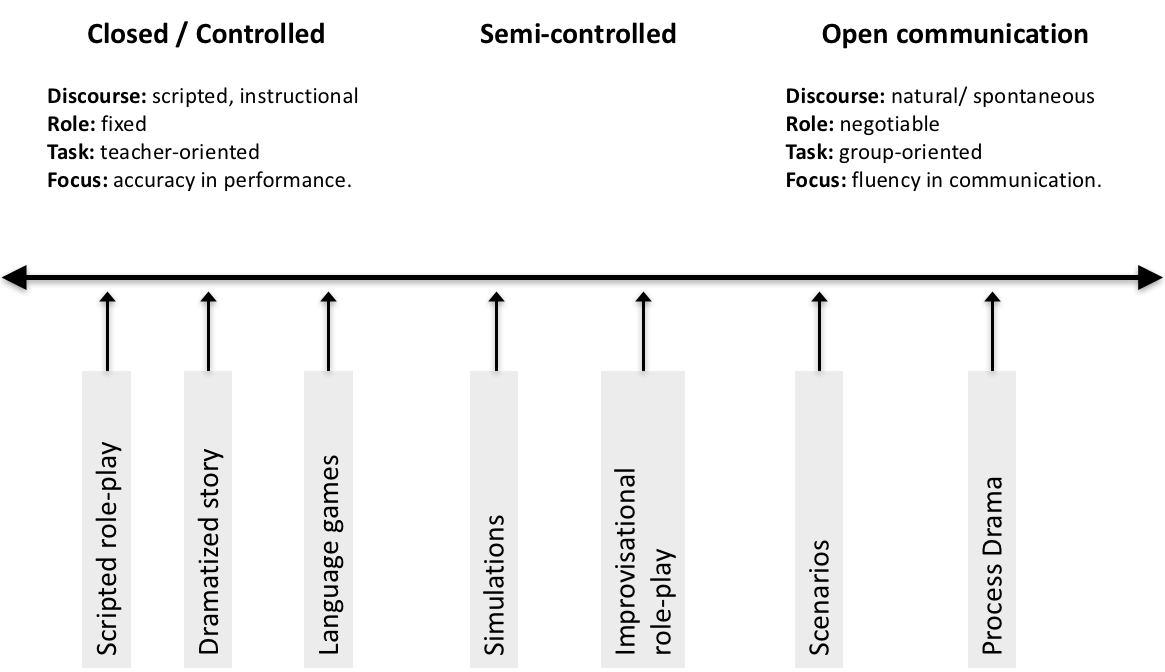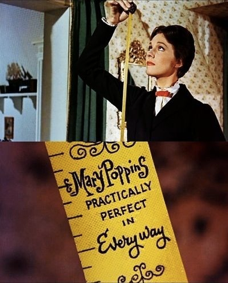
‘That is the question’, Hamlet would say. That is THE question I asked myself when I began to develop an interest in teaching languages through drama-based methods. At that time, I had only a vague feeling that playing a script or improvising a sketch are just a little part of learning a language through the mean of drama. That feeling turned into awareness very soon when I started to research the matter, then to create the first ‘Learn English through Drama’ courses and to test the efficacy of my training format.
In this article I would like to share my thoughts with you, teachers and teachers-to-be, about the difference between teaching through theatre and playing drama scripts. I feel this is important for two reasons. Firstly, that difference is the basis of ‘Learn English through Drama’ training format. Therefore, it is essential we get rid of any doubts about such an important starting point. Secondly, as experts in teaching languages through drama you HAVE to be able to explain the difference between learning a language through the mean of theatre and acting in a foreign language.
I am thinking of you talking to your students, or potential students, or even to your students’ parents and I am guessing the questions they might ask you. Because of the unconventional methodology, your students will need to know more about it for sure at some point. They might ask you questions like: ‘Will I learn or revise the grammar in your course?’, or ‘Do I need to have experience in acting for taking part in your course?’, or even ‘Acting is not really my cup of tea, don’t you do traditional lessons?’, just to give you some examples. Well, your answer will be: learning languages through drama is one thing, whilst acting in a foreign language is totally a different thing.
For instance, in Learn English through Drama training format playing scripts and improvising are actually a small part of the whole course. Sometimes playing and improvising are not even part of the programme, depending on the students’ level and on their needs. Let’s have a closer look at the difference between language courses based on drama and playing in a foreign language.
“As experts in teaching languages through drama you HAVE to be able to explain the difference between learning a language through the mean of theatre and acting in a foreign language.”
Teaching languages through drama involves games, playful activities, drama exercises, as well as explanations and reflections on the grammar structures
Teaching languages through drama involves games, playful activities, drama exercises, as well as explanations and reflections on the grammar structures. The teachers will propose all these exercises and methods by following precise guidelines and by sticking to a methodological framework. Such framework is designed to take the students to results that the teachers can observe, assess and evaluate.
In other words, it is a learning path where the teachers have already planned what the students will learn (i.e. learning goals, topics, grammar structures) and how they will learn it (i.e. what kinds of exercises, the methods). Also, the teachers will walk the students through this path and they will act as facilitators of the learning process. This is what we call a proper language course.
Delivering a course where students will play scripts in the language they are learning can be suitable for students who need to polish their skills (such as the pronunciation, for instance) or to put the vocabulary they have learnt into action. However, such lessons entirely based on analysing drama scripts and playing them out can have little to do with proper language lessons. Moreover, playing scripts requires a specific work on students’ acting skills, which is usually irrelevant in language courses.
Playing drama scripts is ONLY one small element of the bigger picture
Playing drama scripts is ONLY one small element of the bigger picture. By bigger picture I mean the variety of methods we teachers can use in language courses based on drama. The authors Shin-Mei Kao and Cecily O’Neill (ref. ‘Words into worlds: learning a second language through process drama’) made an excellent contribution about what approaches we can use in drama-based language courses. They put together a continuum of different drama approaches for L2 teaching and learning. Here it is:

I will talk more in depth about Kao’s and O’Neill’s continuum in the next articles. Stay tuned! 🙂
Hence, designing lessons where students act in a foreign language could make perfectly sense according to the learning goals you have set for your students. Whether you want to use a variety of approaches in your lessons or just make your students playing in a foreign language, just ask yourself WHY you would choose one approach rather than other one. What learning goals are you aiming at? What do your students should learn? What skills should they solidify? These are all questions you will ask yourself when you will be designing the lessons for your students.
Ask yourself WHY you would choose one approach rather than other one. What learning goals are you aiming at?
It is a matter of expectations
There is an aspect I invite you not to underestimate. That is the way you engage your students and your students’ families in your training offer. In other words, the way you make them aware of WHAT contents your lessons will have and HOW you are going to cover them. In fact, most people will match ‘learning a language through drama’ with ‘acting and playing’. So, it is extremely important that you help them to figure out what your lessons will be about and that what you will do is a proper language course, not a course for training actors. I recommend you to be extremely thorough about this.
Giving the students a clear picture of what your lessons are about is essential to your success as a teacher: it avoids disappointment and it defends your identity as a language teacher. If you want to set your training offer apart from other kinds of courses, I strongly recommend to make sure your students know what to expect from your lessons.

Let me share with you a worst practice. ‘Cause, yes, even though I believe ‘I’m practically perfect in every way’ (cit. Mary Poppins), sometimes I do make mistakes! 😀
Some time ago we delivered an intensive 1-week English course ‘Learn English through Drama’ for a group of employees coming to London from abroad. Students’ feedback was great, all the students were super happy with the course. Nevertheless, a number of people in the group left not fully positive feedback when on the feedback form it came to the question ‘Were the training objectives clearly declared from the very beginning?’. It came out that I haven’t been able to properly explain goals and contents of the programme. As a consequence, the students felt a bit disorientated at the beginning and it took them a few hours in order for them to get the hang of the lessons.
Anyway, we were able to fix that up and by the end of the course everybody was on board. In fact, the students rated the overall experience 3.7 (in a scale of 5, where 1= not good, 5= awesome!).
That result was good overall, meaning that we were able to catch up with the participants’ expectation. Nevertheless, the overall rating wasn’t as good as the rating we got from other groups, which is usually between 4 and 5 (in a scale of 5, where 1= not good, 5= awesome!). That’s the rating we want to get all the times!
“Giving the students a clear picture of what your lessons are about is essential to your success as a teacher: it avoids disappointment and it defends your identity as a language teacher.”
Wrapping up
To sum up, teaching languages through drama means that you will help your students to explore topics and absorb new vocabulary, to learn grammar structures and to get familiar with different communicative functions. By all means, you will design and deliver proper language courses, whilst drama is the way (the methodology) we choose to deliver the lessons. It is the mean that helps us to get all the students involved, to keep them focused, to make them memorise faster and to take them to the expected results.
Furthermore, by drama we don’t mean necessarily playing out scripts. In fact, there is a variety of methods and exercises coming from theatre, for which sometimes students don’t have neither to play roles nor to act. For people who need to boost their self-confidence in speaking a foreign language, this is absolutely reassuring!
Ultimately, you want your students to know exactly what they are going to do in your lessons. Whether you teach in school and need to stick to a programme someone else designed for you, or you organise your own courses, it is so important for you to make sure your students can figure out what to expect.
Remember, it is all about defending the value of your lessons.
I can’t wait to know your thoughts and experiences!
Want more support?
Join the Facebook group Independent Language Teachers Collective to get daily advice, tons of free training and to branch out with other independent language teachers like you!
ALSO…
Available only for the Collective members: free list 103 question for sparking engagement in your language lessons.
This is what members say about the freebie:

Join in the Collective and grab your welcome gift:
Join Facebook Group

